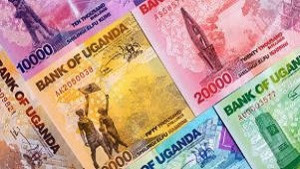The report, a product of discussions between the World Bank and the SA government in early 2023, outlines a policy roadmap to address structural weaknesses hampering economic progress.
The report highlights two major concerns: weak market competition and inefficient institutions, which have contributed to slow economic growth and persistently high unemployment. It warns that without decisive reforms, SA risks further economic stagnation.
Economist Dawie Roodt of the Efficient Group agrees with the report’s assessment. “The World Bank is always diplomatic in its wording, but the reality is that SA has been at this economic crossroads for some time,” he said.
“Every year, conditions seem to worsen. A key indicator is per capita GDP, which shows that we are poorer today than nearly 20 years ago.”
The World Bank report highlights the lack of competitiveness within SA’s macroeconomic environment. Roodt explains that the issue is not just about private sector monopolies, but also inefficient institutions such as Eskom and Transnet. “Institutions like Eskom, Transnet, and local authorities create an environment that stifles competition and economic growth,” he noted.
“For instance, Eskom’s monopoly on electricity supply has led to steep price increases that contribute to inflation.”
One of the key measures to foster a more competitive economy is increased private sector participation. Roodt points to recent developments where the private sector has stepped in to provide electricity as Eskom falters.
“It’s encouraging that the private sector is now playing a larger role in electricity generation, but the question remains, Why did we have to wait for a full-blown crisis before making these changes?” he asked.
Roodt also weighed in on the role of small businesses in SA's economy, cautioning against overestimating their impact.
“Small businesses provide jobs, but they are often unstable, don’t pay significant taxes, and struggle to survive long-term. While they play a role, the focus should be on creating a business-friendly environment for all enterprises, big and small.”
The political landscape in SA is also undergoing a transformation, with the Government of National Unity (GNU) navigating early challenges.
Roodt believes this could be an opportunity for real economic reform. “We are at a political watershed moment,” he said.
“The African National Congress now understands it is no longer the sole governing force, and decisions will need broader consensus.”
Looking ahead, the challenge will be implementing the difficult but necessary economic reforms. The World Bank’s recommendations include cutting government spending, improving institutional efficiency, and fostering a more competitive market environment. While these measures will be politically challenging, Roodt remains cautiously optimistic.
“We’ve exhausted all other options. Now is the time to do the right thing,” he concluded.
--ChannelAfrica--












